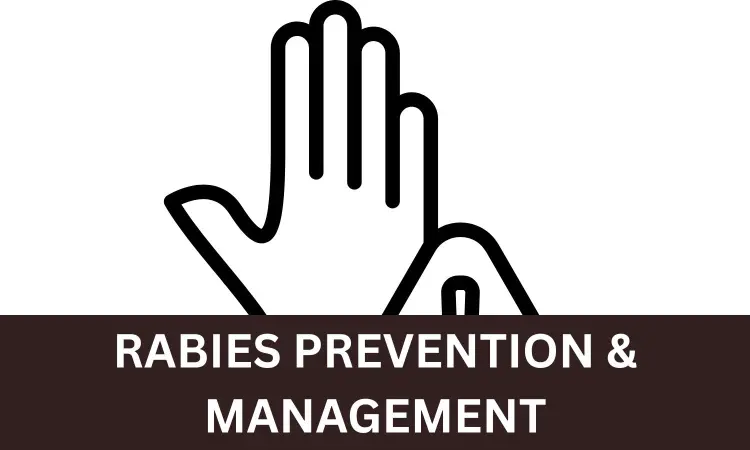- Home
- Medical news & Guidelines
- Anesthesiology
- Cardiology and CTVS
- Critical Care
- Dentistry
- Dermatology
- Diabetes and Endocrinology
- ENT
- Gastroenterology
- Medicine
- Nephrology
- Neurology
- Obstretics-Gynaecology
- Oncology
- Ophthalmology
- Orthopaedics
- Pediatrics-Neonatology
- Psychiatry
- Pulmonology
- Radiology
- Surgery
- Urology
- Laboratory Medicine
- Diet
- Nursing
- Paramedical
- Physiotherapy
- Health news
- Fact Check
- Bone Health Fact Check
- Brain Health Fact Check
- Cancer Related Fact Check
- Child Care Fact Check
- Dental and oral health fact check
- Diabetes and metabolic health fact check
- Diet and Nutrition Fact Check
- Eye and ENT Care Fact Check
- Fitness fact check
- Gut health fact check
- Heart health fact check
- Kidney health fact check
- Medical education fact check
- Men's health fact check
- Respiratory fact check
- Skin and hair care fact check
- Vaccine and Immunization fact check
- Women's health fact check
- AYUSH
- State News
- Andaman and Nicobar Islands
- Andhra Pradesh
- Arunachal Pradesh
- Assam
- Bihar
- Chandigarh
- Chattisgarh
- Dadra and Nagar Haveli
- Daman and Diu
- Delhi
- Goa
- Gujarat
- Haryana
- Himachal Pradesh
- Jammu & Kashmir
- Jharkhand
- Karnataka
- Kerala
- Ladakh
- Lakshadweep
- Madhya Pradesh
- Maharashtra
- Manipur
- Meghalaya
- Mizoram
- Nagaland
- Odisha
- Puducherry
- Punjab
- Rajasthan
- Sikkim
- Tamil Nadu
- Telangana
- Tripura
- Uttar Pradesh
- Uttrakhand
- West Bengal
- Medical Education
- Industry
NMC issues advisory for medical colleges on rabies management

New Delhi: The National Medical Commission (NMC) has issued an advisory urging all medical colleges and institutions to enhance their role in the National Rabies Control Programme (NRCP).
The advisory emphasizes the importance of periodic training for medical staff, including Junior Residents, Senior Residents, and students, on the management of animal and dog bites, as well as the timely administration of post-exposure prophylaxis (PEP) according to national guidelines.
Additionally, the NMC stresses the need for ensuring the continuous availability of Anti-Rabies Vaccine (ARV) and Anti-Rabies Serum (ARS) in medical colleges for effective bite management. It also mandates the maintenance of an Animal Bite Exposure (ABE) Register to track all animal bite cases, along with surveillance and reporting of such cases to the State Nodal Officer-NRCP. Furthermore, the advisory highlights the importance of raising public awareness at medical institutions through the display of information and educational materials on rabies prevention.
In India, rabies remains a major public health concern, primarily due to dog-mediated transmission. However, it is 100% fatal, but also almost 100% preventable with timely administration of post-exposure prophylaxis (PEP) immediately after an animal bite.
On this, on 28th September 2021, a National Action Plan for Dog-Mediated Rabies Elimination by 2030 (NAPRE) was conceptualised and jointly launched by the Ministry of Health & Family Welfare (MoHFW) and the Ministry of Fisheries, Animal Husbandry & Dairying (MoFAHD).
In the notice, the NMC mentioned that Medical Colleges / Institutions play a pivotal role in ensuring timely case management, surveillance, training, and community awareness.
Therefore, the National Medical Commission (NMC) has released an advisory requesting all the Medical Colleges / Institutions to undertake the following key activities under the National Rabies Control Programme (NRCP)-
1 PERIODIC TRAINING OF MEDICAL STAFF
Conduct regular and structured training sessions for Junior Residents, Senior Residents, and Students on animal bite/dog bite management and rabies PEP as per the latest national guidelines.
2 ENSURING AVAILABILITY OF PEP LOGISTICS
Ensure sustained availability of Anti-Rabies Vaccine (ARV) and Anti-Rabies Serum (ARS) in all Medical Colleges for timely and effective management of animal bite victims.
3 MAINTENANCE OF ANIMAL BITE EXPOSURE (ABE) REGISTER
Each Medical College should maintain a dedicated ABE Register, updated regularly with details of all animal bite cases managed by the institution.
4 SURVEILLANCE AND DATA REPORTING
All animal bite/dog bite cases and suspected human rabies cases must be reported to the respective State Nodal Officer-NRCP of the State Health Department. The data should also be uploaded to the Integrated Health Information Platform (IHIP) under IDSP
5 AWARENESS GENERATION AT FACILITY LEVEL
Medical Colleges and their associated hospitals / peripheral centres should actively promote rabies awareness by displaying IEC materials and videos in OPDs, emergency areas, and waiting halls.
To view the advisory, click the link below
I am a student of Journalism and Mass Communication and also a passionate writer and explorer. With a keen interest in medicine, I have joined Medical Dialogues as a Content Writer. Within this role, I curate various healthcare-related news including the latest updates on health, hospitals, and regulatory updates from NMC/DCI. For any query or information, feel free to reach out to me at editorial@medicaldialogues.in


